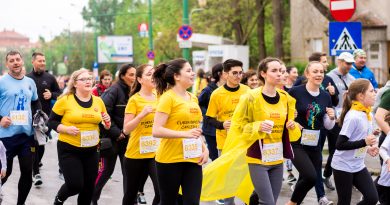Nossos cérebros não foram projetados para manter o foco indefinidamente. Nossos cérebros alternam naturalmente entre os modos de pensamento focado e difuso. Ambos os modos de pensamento possuem suas particularidades e conhecendo melhor estas formas de funcionamento de nossos cérebros podemos nos tornar mais produtivos e melhores aprendizes.
Barbara Oakley é professora de engenharia na Oakland University em Rochester, Michigan, e Ramón y Cajal Distinguished Scholar of Global Digital Learning na McMaster University. Sua pesquisa envolve bioengenharia com ênfase em neurociência e psicologia cognitiva. Oakley ensina dois cursos online abertos massivos (MOOCs), Learning How to Learn (o curso mais popular do mundo) e Mindshift, ao lado do neurocientista Terrence Sejnowski.
| Audio | |
|---|---|
Normal | Slow |
| English Transcript | Tradução |
| What do you do when you just can't figure something out? | O que você faz quando simplesmente não consegue descobrir algo? |
| For zombies, it's pretty simple. | Para zumbis, é muito simples. |
| They can just keep bashing their brains against the wall. | Eles podem simplesmente continuar batendo seus cérebros contra a parede. |
| But living brains are a lot more complex. | Mas cérebros vivos são muito mais complexos. |
| It turns out though, that if you understand just a little bit of some of the basics about how your brain works, you can learn more easily and be less frustrated. | Acontece, porém, que se você entender apenas um pouco do básico sobre como seu cérebro funciona, você pode aprender mais facilmente e ficar menos frustrado. |
| Researchers have found that we have two fundamentally different modes of thinking. | Os pesquisadores descobriram que temos dois modos fundamentalmente diferentes de pensar. |
| Here I'll call them the focused and the diffuse modes. | Aqui, vou chamá-los de modos focalizados e difusos. |
| We're familiar with focusing. | Estamos familiarizados com o modo focalizado. |
| It's when you concentrate intently on something you're trying to learn or to understand, but we're not so familiar with diffuse thinking. | É quando você se concentra intensamente em algo que está tentando aprender ou entender, mas não estamos tão familiarizados com o pensamento difuso. |
| Turns out that this more relaxed thinking style is related to a set of neural resting states. | Acontece que esse estilo de pensamento mais relaxado está relacionado a um conjunto de estados de repouso neural. |
| We're going to use an analogy of the game of pinball to help us understand these two thinking modes. | Vamos usar a analogia do jogo de pinball para nos ajudar a entender esses dois modos de pensamento. |
| Incidentally, both metaphor and analogy are really helpful when you're trying to learn something new. | A propósito, tanto a metáfora quanto a analogia são realmente úteis quando você está tentando aprender algo novo. |
| If you remember, a pinball game works by you pull back on the plunger, release it and a ball goes pointing out, bouncing around on the rubber bumpers, and that's how you get points. | Se você se lembra, um jogo de pinball funciona quando você puxa o êmbolo, solta e uma bola vai apontando para fora, quicando nos para-choques de borracha, e é assim que você ganha pontos. |
| So here's your brain, with the ears right here, and the eyes looking upwards, and we can lay that pinball machine right down inside it. | Então aqui está seu cérebro, com as orelhas bem aqui e os olhos olhando para cima, e podemos colocar aquela máquina de fliperama bem dentro dele. |
| So there you go. | Então aí está. |
| There's the analogy for the focused mode. | Essa é a analogia para o modo focalizado. |
| The blue rubber bumpers here are placed very close to one another. | Os para-choques de borracha azuis aqui são colocados muito próximos um do outro. |
| See the orange pattern here towards the top? | Está vendo o padrão laranja aqui no topo? |
| It represents a familiar thought pattern, maybe involving something simple like adding some numbers or more advanced ideas like literary criticism, or calculating electromagnetic flux. | Ele representa um padrão de pensamento familiar, talvez envolvendo algo simples como adicionar alguns números ou ideias mais avançadas, como crítica literária, ou calcular o fluxo eletromagnético. |
| You think a thought, boom, it takes off, moves smoothly along and then, as it's bouncing around on the bumpers, you're able to figure out the problem you're trying to solve or the concept you're trying to understand that's related to something you're rather familiar with. | Você pensa um pensamento, bum, ele decola, se move suavemente e então, conforme está batendo nos pára-choques, você é capaz de descobrir o problema que está tentando resolver ou o conceito que está tentando entender que é relacionado a algo com o qual você está bastante familiarizado. |
| So look at how that thought moves smoothly around on the fuzzy underlying orange neural pathway. | Portanto, observe como esse pensamento se move suavemente no caminho neural laranja difuso subjacente. |
| In some sense it's as if it's travelling along a familiar, nicely paved road. | Em certo sentido, é como se estivesse viajando por uma estrada familiar e bem pavimentada. |
| But what if the problem you're working on needs new ideas or approaches, concepts you haven't thought of before? | Mas e se o problema no qual você está trabalhando precisar de novas idéias ou abordagens, conceitos nos quais você nunca pensou antes? |
| That symbolized here by this neural pattern towards the bottom of the pinball machine area. | Isso é simbolizado aqui por este padrão neural na parte inferior da área da máquina de pinball. |
| But if you haven't thought that thought before, you don't even know how that pattern feels or where it is. | Mas se você nunca pensou esse pensamento antes, você nem sabe como é esse padrão ou onde ele está. |
| So how are you going to develop that new thought in the first place? | Então, como você vai desenvolver esse novo pensamento em primeiro lugar? |
| Not only do you not know where the pattern is, or what the pattern looks like, but see all the rubber bumpers that are blocking your access, whatever direction you do decide to move in? | Você não só não sabe onde está o padrão, ou como ele se parece, mas também vê todos os pára-choques de borracha que estão bloqueando seu acesso, seja qual for a direção em que você decidir se mover? |
| To get to this new thought pattern, you need a different way of thinking and that's represented here by the diffuse mode. | Para chegar a esse novo padrão de pensamento, você precisa de uma maneira diferente de pensar e isso é representado aqui pelo modo difuso. |
| Look at how widely spaced the rubber bumpers are. | Veja como os amortecedores de borracha são espaçados. |
| Thought takes off. | O pensamento decola. |
| Look at how it moves widely, bounces around. | Veja como ele se move amplamente, salta. |
| It can travel a long way before being interrupted by hitting a bumper. | Ele pode percorrer um longo caminho antes de ser interrompido ao bater em um para-choque. |
| In this diffuse mode of thinking, you can look at things broadly, from a very different, big-picture perspective. | Nesse modo difuso de pensar, você pode ver as coisas de maneira ampla, de uma perspectiva muito diferente e ampla. |
| You can make new neural connections traveling along new pathways. | Você pode fazer novas conexões neurais viajando por novos caminhos. |
| You can't focus in as tightly as you often need to to finalize any sort of problem-solving or understand the finest aspects of a concept, but you can at least get to the initial place you need to be in to hone in on a solution. | Você não consegue se concentrar tão firmemente quanto geralmente precisa para finalizar qualquer tipo de solução de problemas ou compreender os melhores aspectos de um conceito, mas pode pelo menos chegar ao ponto inicial que precisa estar para chegar a uma solução. |
| Now, as far as neuroscientists know right now, you're either in the focused mode or the diffuse mode of thinking. | Bem, pelo que os neurocientistas sabem agora, você está no modo focado ou no modo difuso de pensar. |
| It seems you can't be in both thinking modes at the same time. | Parece que você não pode estar nos dois modos de pensamento ao mesmo tempo. |
| It's kind of like a coin. | É como uma moeda. |
| You can see either one side or the other side of the coin, but not both sides at the same time. | Você pode ver um lado ou o outro lado da moeda, mas não os dois lados ao mesmo tempo. |
| Being in one mode seems to limit your access to the other modes way of thinking. | Estar em um modo parece limitar seu acesso aos outros modos de pensar. |
| In our next video we're going to see how some extraordinary people access their diffuse ways of thinking to do great things. | Em nosso próximo vídeo, veremos como algumas pessoas extraordinárias acessam suas formas difusas de pensar para fazer grandes coisas. |
| Thanks for learning about learning. | Obrigada por aprender sobre a aprendizagem. |
| I'm Barbara Oakley. | Sou Barbara Oakley. |
Contagem de palavras
A tabela abaixo exibe as palavras encontradas neste vídeo bem como o número de vezes em que aparecem.
Veja também: Para que serve esta tabela?
| Freq. | Palavra | Freq. | Palavra | Freq. | Palavra |
|---|---|---|---|---|---|
| 36 | the | 25 | you | 24 | to |
| 17 | of | 15 | a | 11 | in |
| 10 | thinking | 10 | that | 10 | or |
| 9 | thought | 9 | it | 9 | and |
| 8 | you're | 8 | how | 8 | can |
| 7 | pattern | 7 | on | 7 | but |
| 7 | at | 6 | new | 6 | mode |
| 6 | it's | 6 | here | 6 | diffuse |
| 6 | as | 6 | are | 5 | understand |
| 5 | something | 5 | so | 5 | out |
| 5 | modes | 5 | if | 5 | familiar |
| 5 | do | 5 | bumpers | 4 | your |
| 4 | with | 4 | we're | 4 | trying |
| 4 | this | 4 | some | 4 | see |
| 4 | rubber | 4 | pinball | 4 | not |
| 4 | neural | 4 | more | 4 | look |
| 4 | like | 4 | by | 4 | around |
| 3 | when | 3 | what | 3 | way |
| 3 | that's | 3 | right | 3 | problem |
| 3 | one | 3 | need | 3 | moves |
| 3 | learn | 3 | know | 3 | just |
| 3 | is | 3 | going | 3 | get |
| 3 | for | 3 | focused | 3 | different |
| 3 | can't | 3 | both | 3 | before |
| 3 | be | 3 | analogy | 3 | along |
| 3 | access | 2 | works | 2 | widely |
| 2 | where | 2 | we | 2 | very |
| 2 | two | 2 | turns | 2 | towards |
| 2 | time | 2 | things | 2 | their |
| 2 | takes | 2 | smoothly | 2 | simple |
| 2 | side | 2 | seems | 2 | same |
| 2 | related | 2 | place | 2 | other |
| 2 | orange | 2 | off | 2 | now |
| 2 | machine | 2 | learning | 2 | ideas |
| 2 | haven't | 2 | have | 2 | game |
| 2 | figure | 2 | either | 2 | concept |
| 2 | coin | 2 | brains | 2 | brain |
| 2 | bouncing | 2 | being | 2 | about |
| 1 | zombies | 1 | working | 1 | whatever |
| 1 | ways | 1 | wall | 1 | video |
| 1 | use | 1 | us | 1 | upwards |
| 1 | underlying | 1 | travelling | 1 | traveling |
| 1 | travel | 1 | top | 1 | tightly |
| 1 | though | 1 | think | 1 | they |
| 1 | these | 1 | there's | 1 | there |
| 1 | then | 1 | them | 1 | thanks |
| 1 | symbolized | 1 | style | 1 | states |
| 1 | spaced | 1 | sort | 1 | solving |
| 1 | solve | 1 | solution | 1 | sides |
| 1 | set | 1 | sense | 1 | road |
| 1 | resting | 1 | researchers | 1 | represents |
| 1 | represented | 1 | remember | 1 | release |
| 1 | relaxed | 1 | really | 1 | rather |
| 1 | pull | 1 | pretty | 1 | points |
| 1 | pointing | 1 | plunger | 1 | placed |
| 1 | picture | 1 | perspective | 1 | people |
| 1 | paved | 1 | pathways | 1 | pathway |
| 1 | our | 1 | only | 1 | often |
| 1 | oakley | 1 | numbers | 1 | nicely |
| 1 | next | 1 | neuroscientists | 1 | needs |
| 1 | move | 1 | metaphor | 1 | maybe |
| 1 | make | 1 | lot | 1 | looks |
| 1 | looking | 1 | long | 1 | living |
| 1 | little | 1 | literary | 1 | limit |
| 1 | less | 1 | least | 1 | lay |
| 1 | kind | 1 | keep | 1 | involving |
| 1 | interrupted | 1 | intently | 1 | inside |
| 1 | initial | 1 | incidentally | 1 | I'm |
| 1 | I'll | 1 | hone | 1 | hitting |
| 1 | here's | 1 | helpful | 1 | help |
| 1 | great | 1 | goes | 1 | go |
| 1 | fuzzy | 1 | fundamentally | 1 | frustrated |
| 1 | from | 1 | found | 1 | focusing |
| 1 | focus | 1 | flux | 1 | first |
| 1 | finest | 1 | finalize | 1 | feels |
| 1 | far | 1 | eyes | 1 | extraordinary |
| 1 | even | 1 | electromagnetic | 1 | easily |
| 1 | ears | 1 | down | 1 | don't |
| 1 | direction | 1 | develop | 1 | decide |
| 1 | criticism | 1 | connections | 1 | concepts |
| 1 | concentrate | 1 | complex | 1 | close |
| 1 | call | 1 | calculating | 1 | bumper |
| 1 | broadly | 1 | bounces | 1 | bottom |
| 1 | boom | 1 | blue | 1 | blocking |
| 1 | bit | 1 | big | 1 | basics |
| 1 | bashing | 1 | barbara | 1 | ball |
| 1 | back | 1 | aspects | 1 | area |
| 1 | approaches | 1 | any | 1 | another |
| 1 | an | 1 | all | 1 | against |
| 1 | advanced | 1 | adding | 1 | able |









